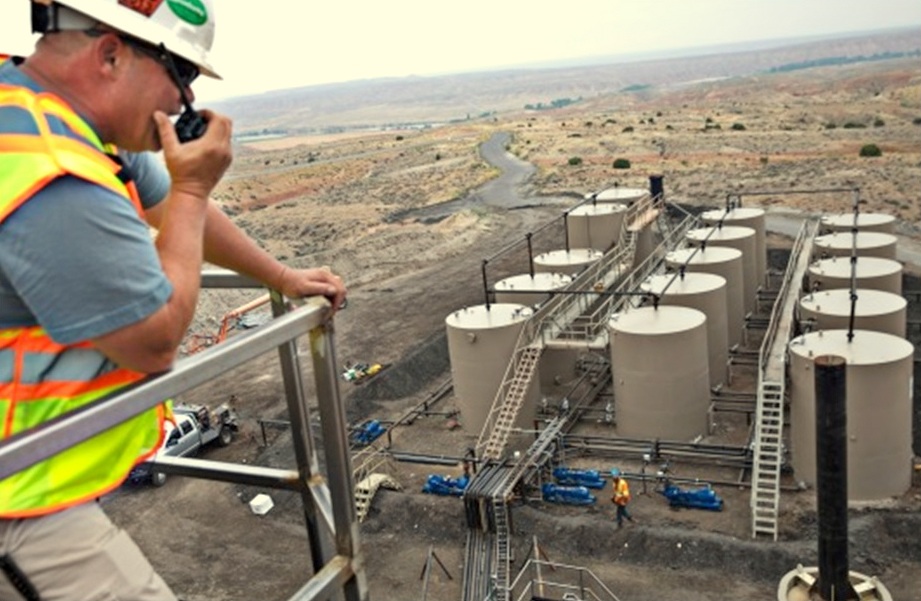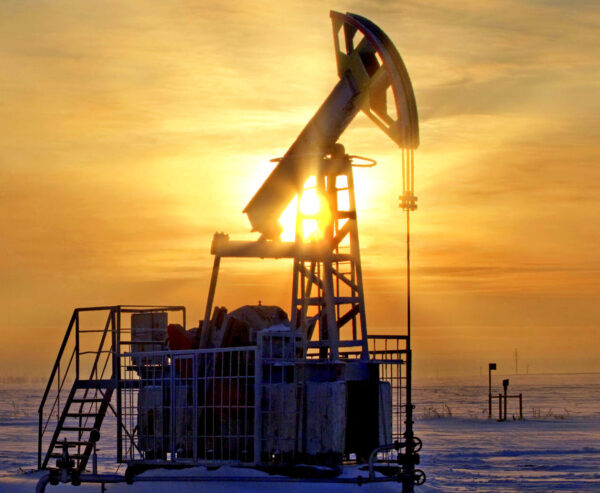Last week as gas prices continued to surge, the Biden Administration turned to foreign powers asking them to increase productions, hoping the addition to oil supply would apply downward pressure to the price of crude.
OPEC+, which includes Russia, had declined Western pleas to increase production. Much of the world’s oil is controlled by OPEC and is pumped from the Gulf nations in the Middle East. Yet, relations between the Gulf nations and the U.S. have chilled under Biden.
The Wall Street Journal reported that officials from both Saudi Arabia and United Arab Emirates have given the White House the cold shoulder, unwilling to return Biden’s phone calls.
The Whitehouse then sought to purchase oil from pariahs Venezuela and Iran to offset President Biden’s ban on Russian oil after announcing sanctions against Russia’s oil imports. Both Iran and Venezuela have for years been subject to U.S. sanctions due to terrorism and human rights abuses.
The price of crude oil has surged in recent weeks. A barrel of crude was about $55 a barrel in January, 2021 when President Biden was inaugurated, and at the beginning of this year, was up to $76. The trajectory changed on February 25, however, when the price began surging off of $92, to reach $124 on March 8.
Exasperated domestic oil producers and politicians in western states have asked why the Biden Administration is turning to foreign nations for oil, some of which are sanctioned for good reason, rather than ramping production here in the United States.
Alaskan Governor Mike Dunleavy said that Biden should not be lifting sanctions on Iran and Venezuela just to avoid domestic production, and that the sanctions are in place for “good reason.”
“President Biden is searching for oil anywhere on the planet except at home.”
“We should not lift them,” Dunleavy said before stating the problem: “President Biden is searching for oil anywhere on the planet except at home.”
“Why is @POTUS asking dictators in Venezuela and Iran to produce more energy for us?” Rep. Chris Stewart tweeted. “U.S. shale producers can increase production twice as fast as Venezuelan oil companies, and the profits would go to American workers rather than another dictatorship.”
At the same time, White House press secretary Jen Psaki made some startling comments in response to contentious questions from Fox News reporter Peter Doocy on why, if the administration was doing all it could to reduce gas prices, that they not “do it here” by increasing domestic production. Psaki shot back that the administration is not doing anything to limit oil companies from using current drilling leases.
“Let me give you the facts here — I know that can be inconvenient, but I think they’re important in this moment,” Psaki said. “We have actually produced more oil — it is at record numbers — and we continue to produce more oil… There are 9,000 approved drilling permits that are not being used, so the suggestion that we are not allowing companies to drill is inaccurate.”
She continued, “So I would suggest you ask the oil companies why they’re not using those if there’s a desire to drill more.”
Then two days later on February 9 the White House released a video of Jen Psaki explaining that the reason gas prices were up was because of Russian President Vladimir Putin, in a piece called “Jen Psaki on Putin’s Gas Price Hike.” Indeed, Putin’s invasion of Ukraine has been cited by others besides Psaki as the reason for skyrocketing gas prices, but it is an oversimplification of factors that have led to today’s situation.
Psaki’s comments have been widely criticized by western Americans and industry experts familiar with the problems of oil production on federal lands under the Biden administration. It also highlights a major disconnect between knowing what’s actually happening on the ground, and what narrative is being written by government officials and pundits who unfortunately are not familiar with public lands issues and federal leasing.
Energy industry representatives at the CERAWeek energy conference pushed back on White comments last week, accusing the Biden administration of misleading Americans with a “red herring” — which is an argument made with the intention of distracting the public from the real issue.
Anne Bradbury, CEO of the American Exploration & Production Council, made a distinction between the fact there are so many unused drilling permits, and another fact — that the administration paused all new leasing on federal land — regardless of the drilling permit.
“The accusation is a complete red herring,” Bradbury said. “It’s really a distraction from the fact that this administration has paused leasing on federal lands, something that we’re concerned about and something that we think needs to continue right away.”
American Petroleum Institute CEO Mike Sommers pointed out that Psaki’s comments “represents a fundamental misunderstanding as to how this process works.” He explained that “Once you lease land there is a whole process that you have to go through. First you have to actually discover whether actually there is oil and gas in that land. Second of all, you have to get a permit to actually develop that land.”
Other industry experts explained that many drilling permits remain unused because not all permits turn out to be viable, and a moratorium on leasing adds an additional block to developing production which can take months to years to complete. That development requires capital, and investors are willing, the industry says, but with the current administration’s “anti-fossil fuel” rhetoric, it makes it difficult to find those investors.
In spite of the disconnect between what DC politicians say and what westerners know, Utah Governor Spencer Cox wrote a letter urging President Biden to eliminate barriers to increasing U.S. domestic oil and gas production.
“It is strikingly inconsistent for U.S. policy to discourage European reliance on Russian-produced energy while simultaneously refusing the leasing and permitting of oil and gas development on our own federal lands. Your Department of Interior’s anti-energy policies are not merely economically destructive and environmentally wrongheaded, but, as should now be very clear, they have serious geopolitical implications,” Cox wrote.
Aside from the 9,000 unused drilling permits, industry experts suggested that the primary constraint on energy development is actually Biden’s moratorium on leasing.
Kathleen Sgamma, head of the Western Energy Alliance wrote that “It’s flat out incorrect to say public lands leasing is ongoing. The reality is there hasn’t been a single onshore lease sale since the Biden administration took office and it’s unclear there’s one on the horizon. From the looks of it, the Biden administration is working like the devil to hinder, not help, American production.”
With the time it takes to get new oil developed, some have suggested the United States’ goal of achieving energy independence is a long-term one that requires constant work, without hindrance by federal powers. Some wonder if energy crises such as the Ukraine-and-Putin induced crisis is enough to show the Biden administration that we have not been prepared to handle a shock to the oil supply.
“The breaking point is imminent,” Governor Dunleavy told Fox News Digital. “Both Democrats and Republicans see that the U.S. is in a national energy emergency.”
– The Byway

Feature image caption: An oil pumpjack in Russia. Global oil demand dictates how much oil will be extracted, but politicians determine from where it will be extracted. Courtesy of Vladimir Salman, Shutterstock.

